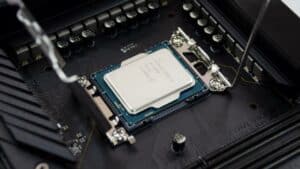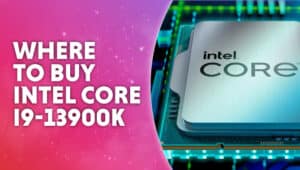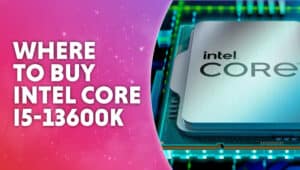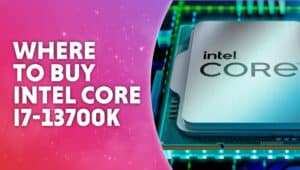Does Intel 13th gen support DDR4 memory?
Does the 13th generation support DDR4? And is it hindering performance to stick with it?
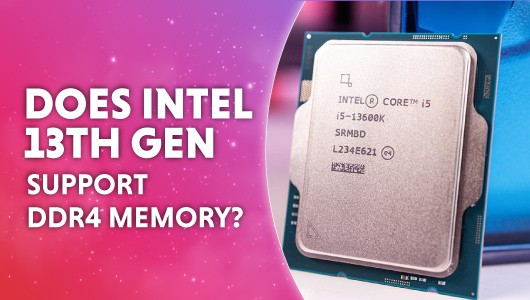
WePC is reader-supported. When you buy through links on our site, we may earn an affiliate commission. Prices subject to change. Learn more
After several weeks and months of speculation, Intel 13th Gen is finally available to consumers, and we’re seeing the same happen with upcoming Intel 14th gen, no surprise. Reviews are live all over the internet, and things look very interesting in the CPU space right now. DDR5 memory is undoubtedly exciting, as is the heated competition between AMD and Intel.
Now read: 13900K review if you want to know the details behind the 13900k, and figure out exactly what makes it tick.
The latest development in the ongoing battle between the two companies is the launch of Intel’s 13th-Gen desktop processors. The lineup was announced on September 27th, 2022, and has hit the shelves just recently. Raptor Lake looks to be a major improvement over its predecessor Alder Lake, and we hope to see the same once 14th gen releases too.
Of course, there are a lot of questions on people’s minds. It’s been quite the past few years for PC gaming, as we’ve seen massive leaps in performance. This is true for both processors and graphics cards. However, people are unsure of whether they need to upgrade.
Supporting DDR4 on such an advanced platform may seem strange since DDR4 is the last generation of memory, however, it’s still a reasonably smart decision due to the prices of DDR5 memory at present. Supporting older hardware helps elevate the cost of upgrading and keeps the users that are more confined to a budget happier.
Intel 13th Gen Raptor Lake – Quick Specs
Intel’s launch lineup for Raptor Lake and 13th Gen processors consists of six CPUs. Of course, there will be more to follow in the coming months. For now, we’re mainly looking at the launch line-up. This includes the i9-13900K, the i7-13600K, and the i5-13600K.
PC Gamers will appreciate that the 13th-Gen processors include a higher core count, more threads, and better clock speeds, among other improvements. Numbers are great and all, but you’ll need to see the benchmarks to truly appreciate the enormous jump in performance.
Take a look at some quick specs.
- Intel Core i9 13900K – 24 cores (8 P-cores+16 E-cores), Up to 5.8GHz Turbo, 36MB L3 Cache, DDR5 Support, and Intel UHD 770 Graphics.
- Intel Core i7 13700K – 16 cores (8 P-cores+8 E-cores), Up to 5.4GHz Turbo, 30MB L3 Cache, DDR5 Support, and Intel UHD 770 Graphics.
- Intel Core i5 13600K – 14 cores (6 P-cores+8 E-cores), Up to 5.1GHz Turbo, 24MB L3 Cache, DDR5 Support, and Intel UHD 770 Graphics.
It’s important to note that all three of these processors also have “KF” variants. These are the i9 13900KF, i7 13700KF, and i5 13600KF. The specs and performance are the same as their regular “K” counterparts.
What separates them is the lack of integrated graphics in the KF version, which makes them cheaper as well.
With that out of the way, let’s take a look at the main topic of discussion.
Does Intel 13th Gen Support DDR4?
DDR5 memory made its public debut back in 2021, along with Intel’s 12th Gen processors and Z690 motherboards.
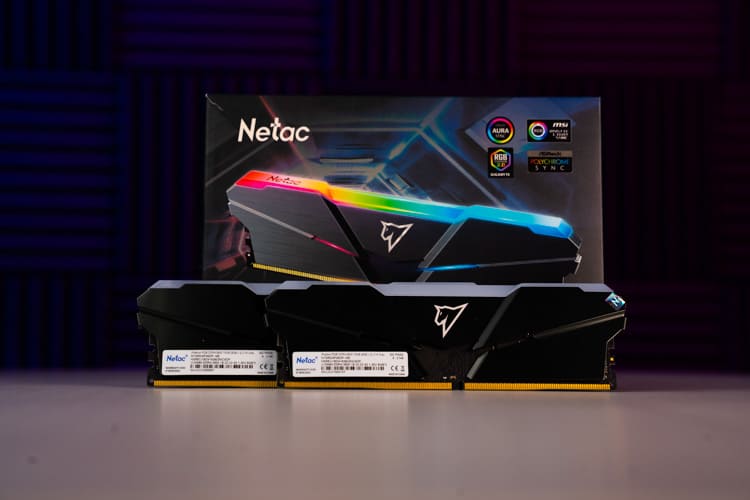
Of course, Intel 13th-Gen also features support for DDR5 memory. With DDR5, you get faster speeds, higher bandwidth, and improved power efficiency. On paper, it is certainly an improvement over DDR4.
With that being said, DDR5 prices are all over the place. You’ll likely end up being twice or even thrice if we’re comparing it to DDR4 modules.
Fortunately, Intel 13th Gen supports DDR4 memory. All of Intel’s current 13th Gen processors support 128GB of either DDR4 or DDR5 memory. The max supported speed is 3200MHz for DDR4, and 5600MHz for DDR5. Of course, you can go higher with some overclocking.
So, if you’re planning to upgrade to an Intel 13th Gen CPU, you do not need to go out and buy DDR5 memory. Your old DDR4 modules will work just fine, so you can rest easy knowing that.
Will DDR4 Be Slower For Intel 13th Gen?
So, DDR5 memory is certainly impressive, and it’s great that we have a new platform to look forward to. However, most of the improvements seem to be on paper right now. DDR5 is very early, and it’s not fully ready for the mainstream.
It’s going to take a while for DDR5 to reach its full potential. While some games are starting to take advantage of DDR5 memory, you’ll still be fine if you don’t upgrade.
However, upgrading to DDR5 will future-proof your system and allow your 13th-generation CPU to reach its full potential.
As such, you could stick with DDR4 memory for now. Just keep in mind that manufacturers make different versions of their boards with DDR4 support. Check this accordingly before buying.
Best DDR4 for Intel 13th gen
Corsair Vengeance RGB Pro 16GB (2x8GB) DDR4 4000MHz
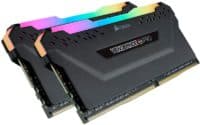
Capacity
16GB (2×8)
Frequency
4000MHz
CAS Latency
19
Best DDR5 for Intel 13th gen
G.Skill Trident Z RGB 32GB 6600MHz DDR5
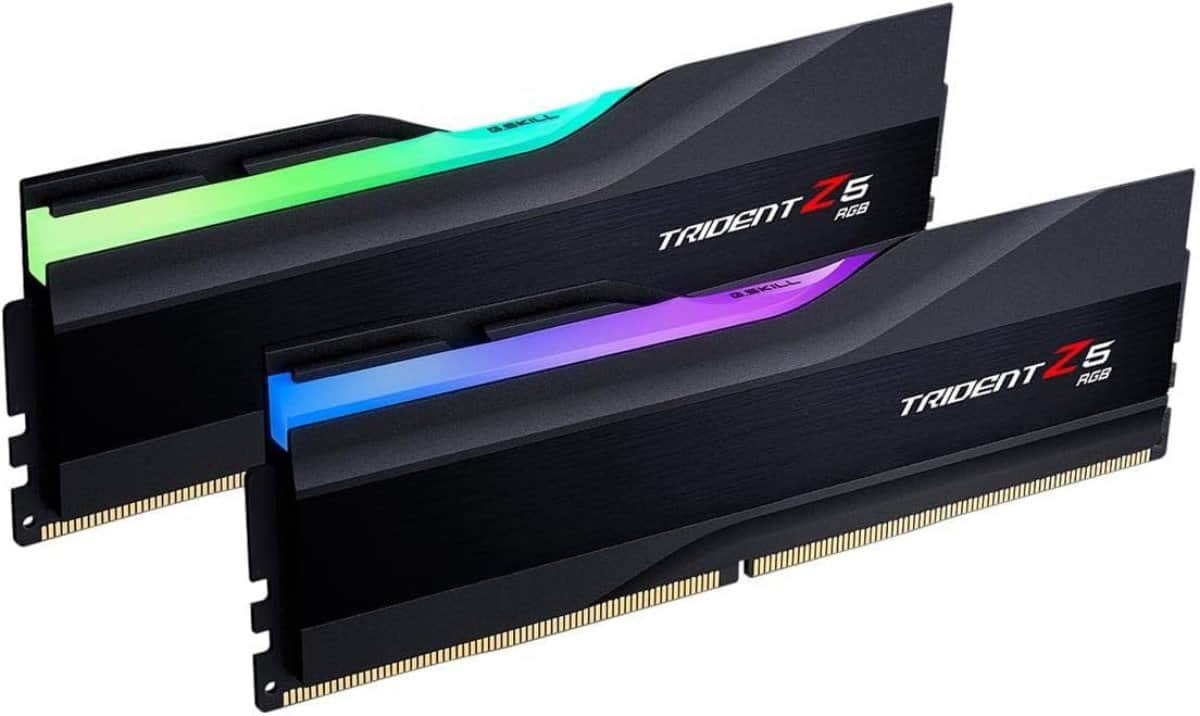
Capacity
32GB
Frequency
DDR5 6600MHz
CAS Latency
CL34
Final Thoughts
Well, there you have it. Intel’s 13th Gen supports DDR4 memory without any issues. There’s no reason to waste money on a new DDR5 RAM kit right now. Even if you can easily afford it, upgrading to DDR5 won’t show you any real-world performance improvements right now. Especially for gaming.



